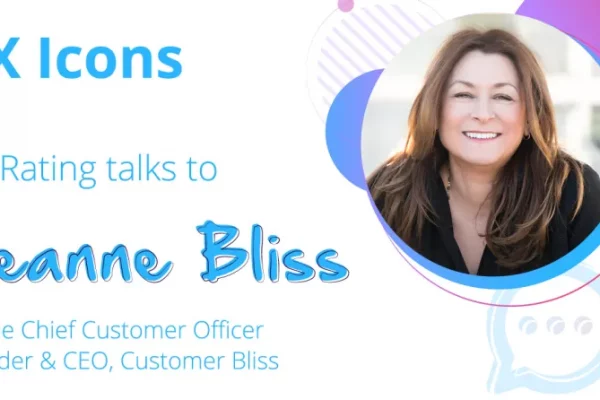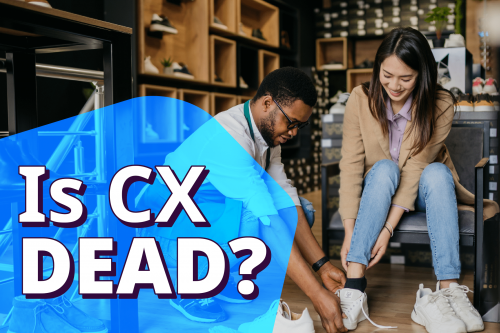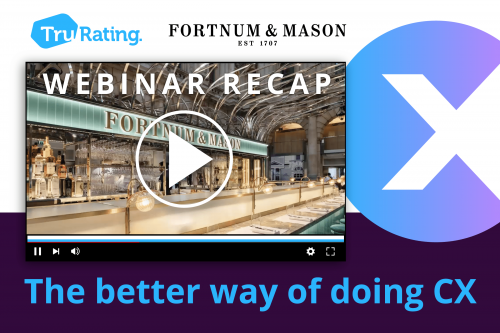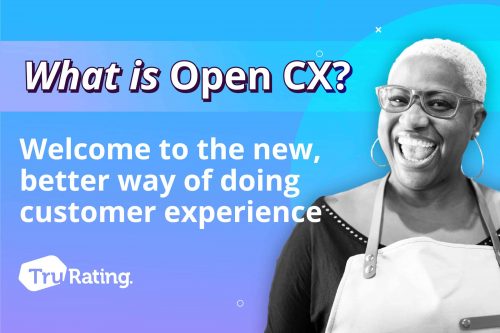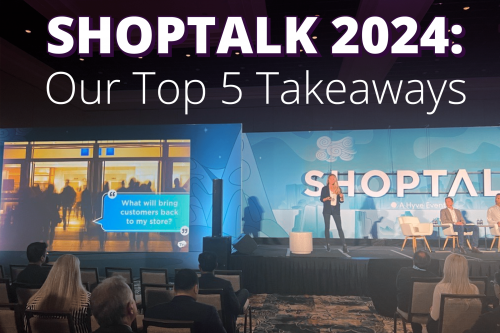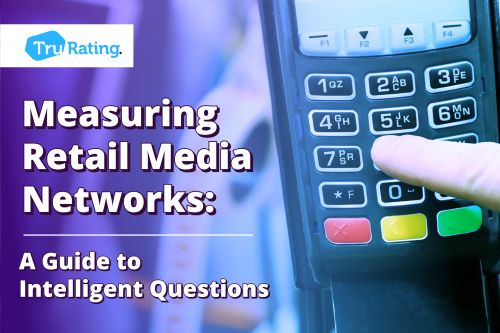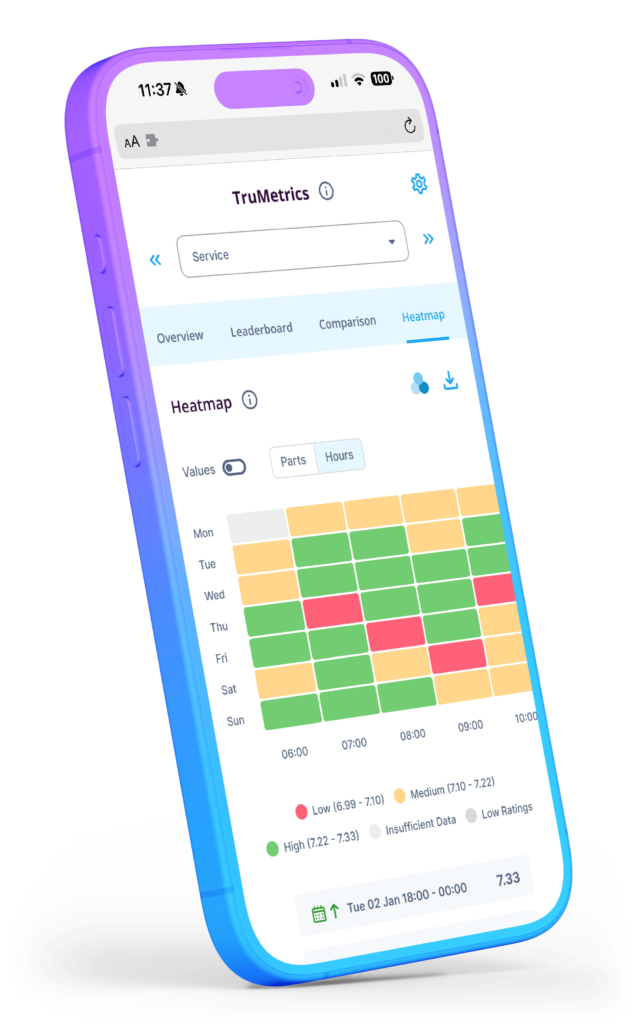Welcome back to part two of our conversation with the godmother of customer experience herself, Jeanne Bliss.
In a fascinating follow-up to part one, this week we discuss the impact of hiring on the customer experience, what it means to practice ‘fearless listening’ and dig deeper into the ultimate purpose of the Chief Customer Officer.
A huge thank you to Jeanne again for taking the time to speak to us, we thoroughly enjoyed it, over to you…
While there’s no ‘secret recipe’ to getting CX right, you’ve talked about how important hiring can be as a part of the process… could you elaborate on that for us?
Let me give you a perfect retail example. We’ve all been to stores that sell swimming suits. For a woman, this can be a horrible experience. It’s just not always a fun thing to do. As a business, you have to ask yourself: are you hiring people who have the empathy and skill to make a potentially awkward experience joyful? Do you have the right people onside and have you trained them to diagnose your customers’ needs with empathy?
For me, it all starts with deliberateness. You need to ask yourself, what memory do I want people to walk out of my store with? Do you want your customer to walk out feeling demoralized that the teenage sales assistant in the store can’t possibly understand what it means to be a 50-year-old woman buying a swimming suit? Or to come out thinking, “Wow they really took the time to listen”, or, “Well, I didn’t buy a suit today, but I’m going to go back because I know they can really help me with this and make me feel comfortable.”
Asking the customer how it’s going, always helps to point us in the right direction. But in order to start taking actions from that feedback, you need to have conversations with your customers, where you can see their faces. Rather than just asking them about their experience, you need to ask about their lives. Who are they? What are their goals? What do they need? What’s working and what’s not? That will lead you to the truer picture of how to stand out, how to connect, and ultimately, how to be specific in the things that will set you apart. I call this “fearless listening”.
We’ve got – and I’m grateful for this – way past focus groups where we put customers in a room, with company leaders behind a mirror watching. What we’re doing now is closer to a form of anthropology, because we start with the customer, with their life and their goals. Feedback points us in the right direction but we then need to consider: what more do we need to know to start taking action? Human context is key.
What would your advice be for a retailer looking to embed the ‘human context’ into their daily practices?
The fortunate thing for retail is that it is less complex than health care or buying an insurance policy, it is less complex than working with a financial advisor…
There are 3 key things that retailers need to get deliberate about:
- What is your purpose? Is it understood and known throughout the organization? Is management flexible enough to let employees own it and translate it? Does the organization provide people examples to follow?
- Do you really know your customers? Have you dug in and done the hard work of talking to them in earnest, listening to them fearlessly and understanding their lives?
- What is the memory you want to imprint? What are your marquee moments? Are you hiring the right people and behaving in the right way to make sure you hit those moments?
Retail doesn’t have the complexity of being a regulated industry, so the world is your oyster in terms of really crafting experience, but you have to have clarity and deliberation about what you’re trying to achieve. People need to own that sense of purpose throughout the organization. Shameless plug, but that’s what I was thinking about when I wrote my book, “Would You Do That To Your Mother?” Are you crafting each part of your customer journey with that kind of ‘personal barometer’ in mind?
It’s interesting that you mention ownership here. There’s a tendency for organizations to say that ‘everyone owns the customer experience’. Does that seem like an oversimplification to you?
There are a couple of points I’d make here. First, when it comes to customer experience, every organization needs to ‘build an engine’ to manage it. By that I mean every company needs to have a very deliberate process for how they go about acquiring and processing customer information. To be able to organize customer information into clear storytelling, to be able to render a single version of the truth, to help leadership understand what’s working and what’s not. That is the work of a Chief Customer Officer. You need to build this engine so that as an organization, you’re not just constantly reacting all the time.
A lot of businesses struggle to do this. But get it right and it will cascade throughout your team so that delivering a ‘marquee moment’ is inherently a part of the job, wherever you happen to sit in the organization. If we just say, ‘it’s everybody’s job to love the customer’, that can end up meaning everything and nothing at the same time.
Just another corporate mantra?
Well, that’s the second part of it. We all like to say we love the customer, but perhaps we have policies in place that cause 10 customers a month to walk out of our stores unhappy. As a front-line person, I can’t be happy doing something I know doesn’t make sense. If we really love the customer, and you love me as an employee, and you want me to deliver value to the customer, then hire me because I’m smart and empathetic. Trust me to make the right decisions for the customer and the business.
Policies are there to provide frameworks. But we need to be secure in the knowledge that we’ve hired good people, who know how to engage a certain amount of flexibility when it’s warranted.
So are you saying that employees need to be even more empowered in terms of being creative when it comes to CX?
Customer Experience exists to reveal incongruencies and to unite leaders in enabling their people to make the right decisions. I have a podcast. I call it the “Chief Customer Officer Human Duct Tape Show” for this reason. Our work is to unite the disparate parts of the organization to see what the customer sees. To shed light on the things we can’t see inside of our silo. To understand what we’re putting our employees and our customers through, deliberate or not.
Thanks so much for talking Jeanne, it’s been fascinating – do you have a final message for our audience?
Recognize that our responsibility is to improve lives. We’re all dealt life and we can choose to be givers or takers. Bravery in business develops givers, whose behaviors earn prosperity – not only financial but in the human spirit. Decide which one you want to be. Ultimately, it comes down to choosing whether you will or won’t grow.
________
Jeanne’s latest book Would You Do That To Your Mother? Is a fantastic introduction to her work. For readers who would like a taster, you can download the first chapter here.
If you’d like to hear even more from Jeanne, the Customer Bliss website is a veritable treasure trove of fantastic information and insight.
For more in the CX Icon Series, you can check out our previous entries below:


